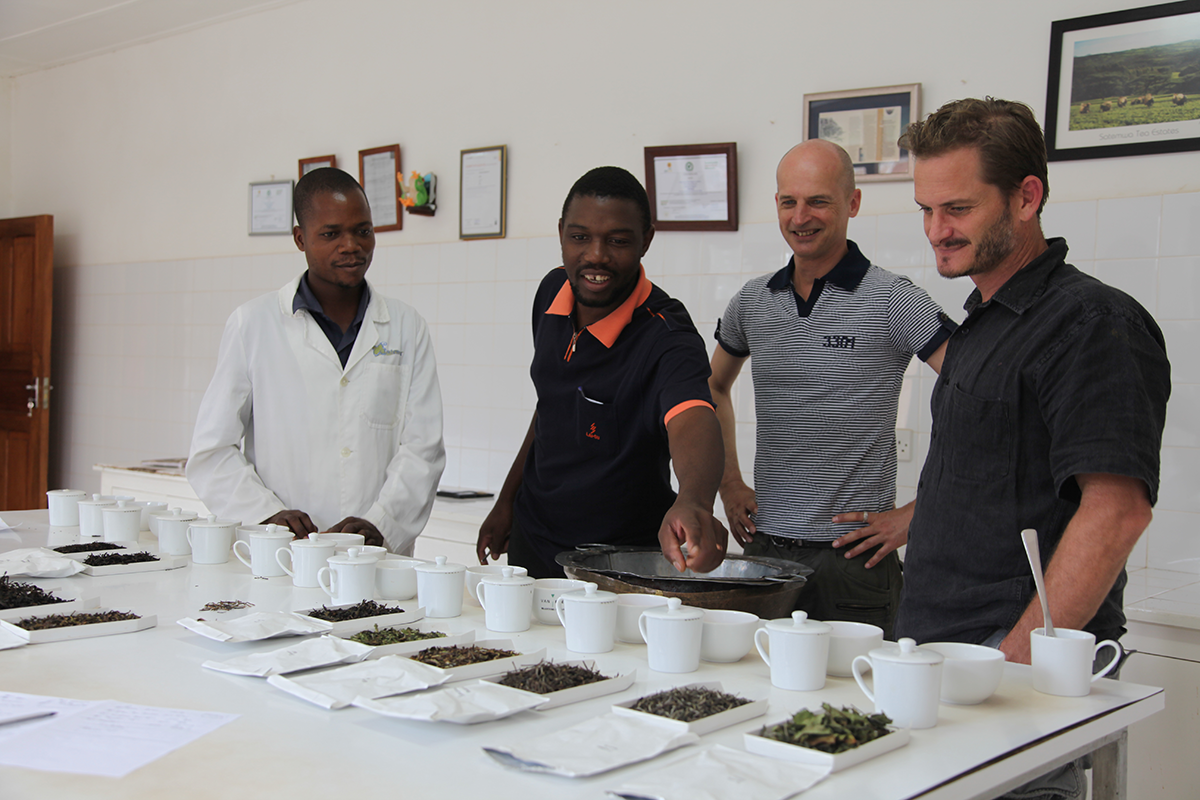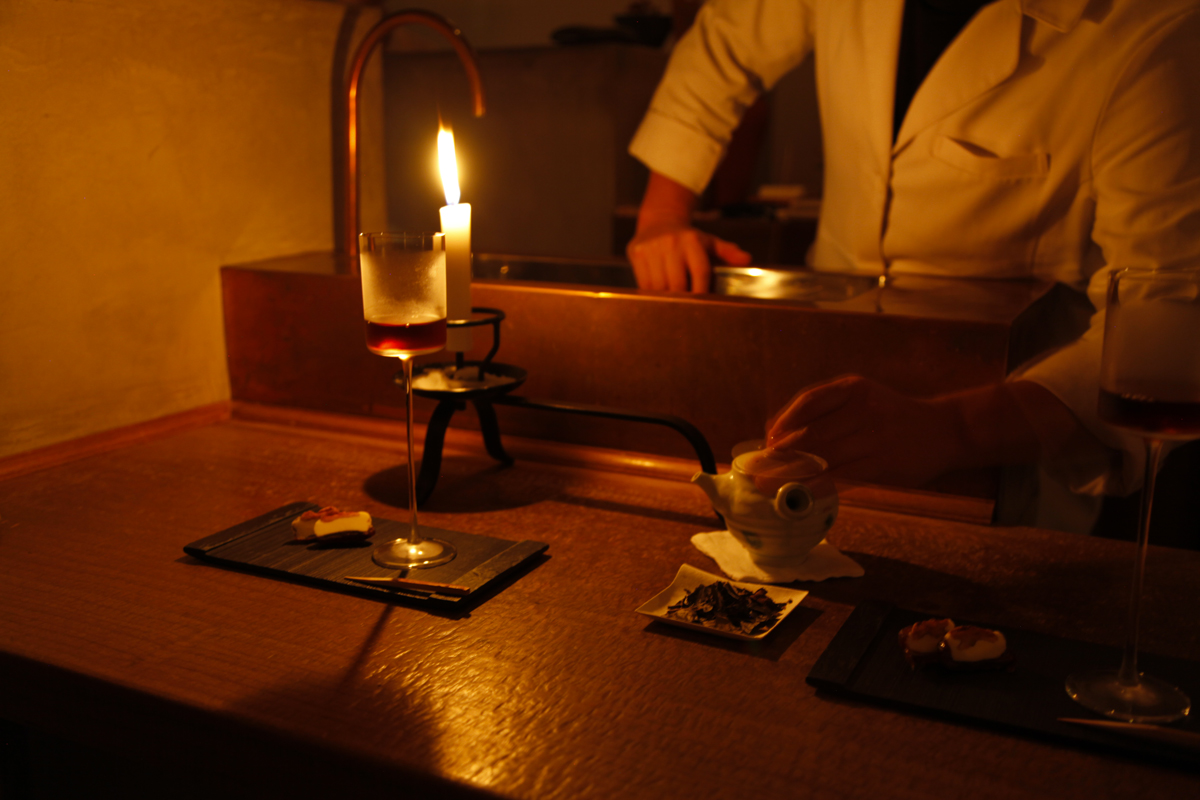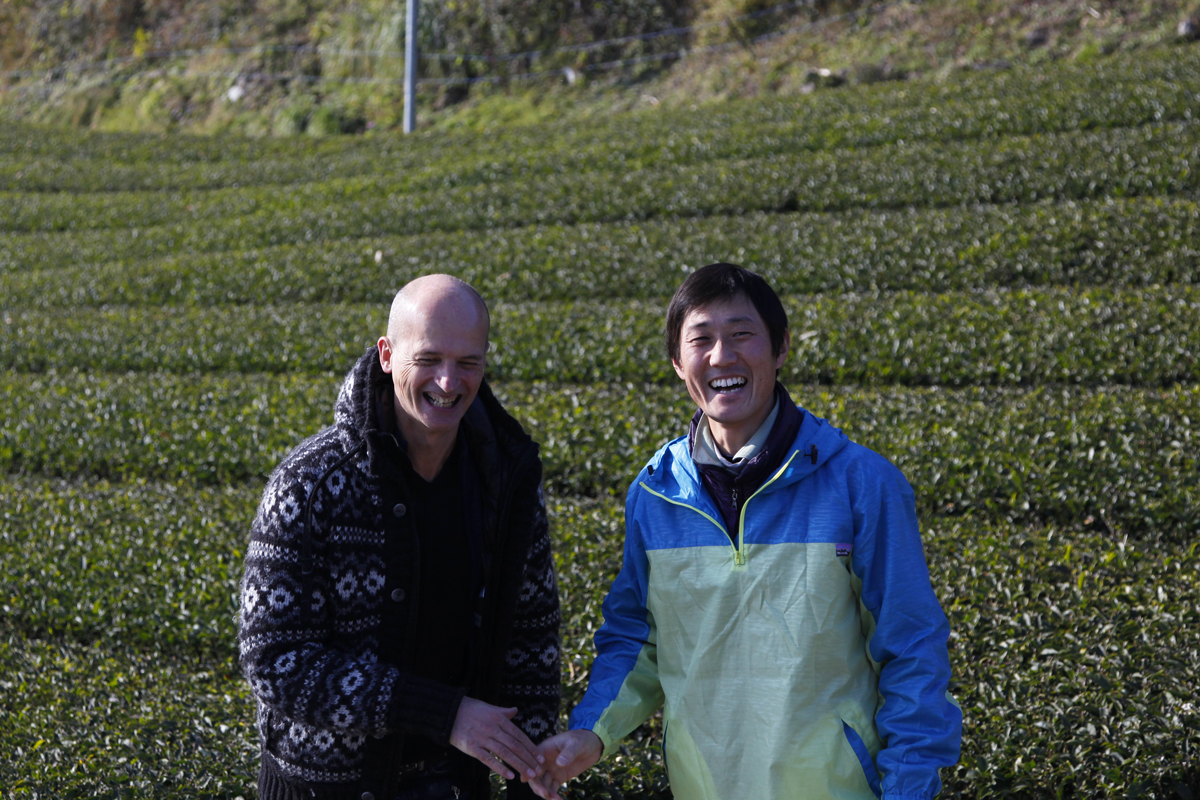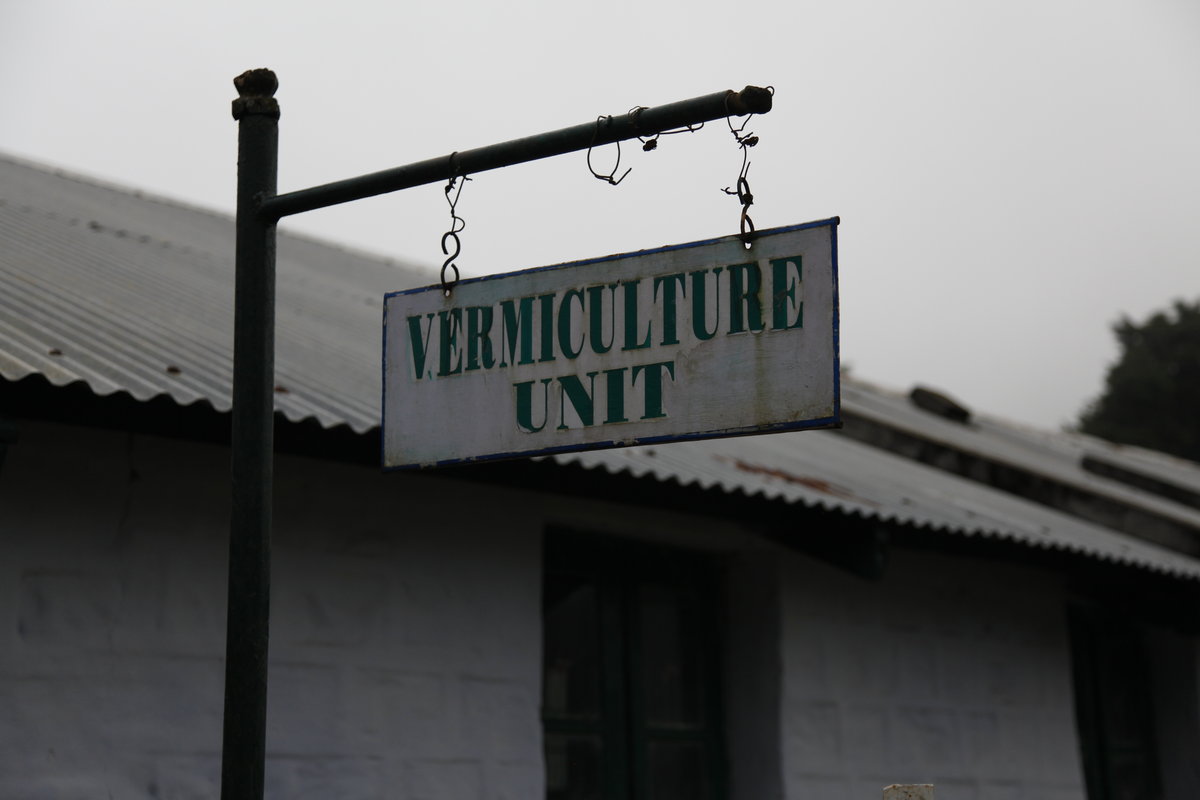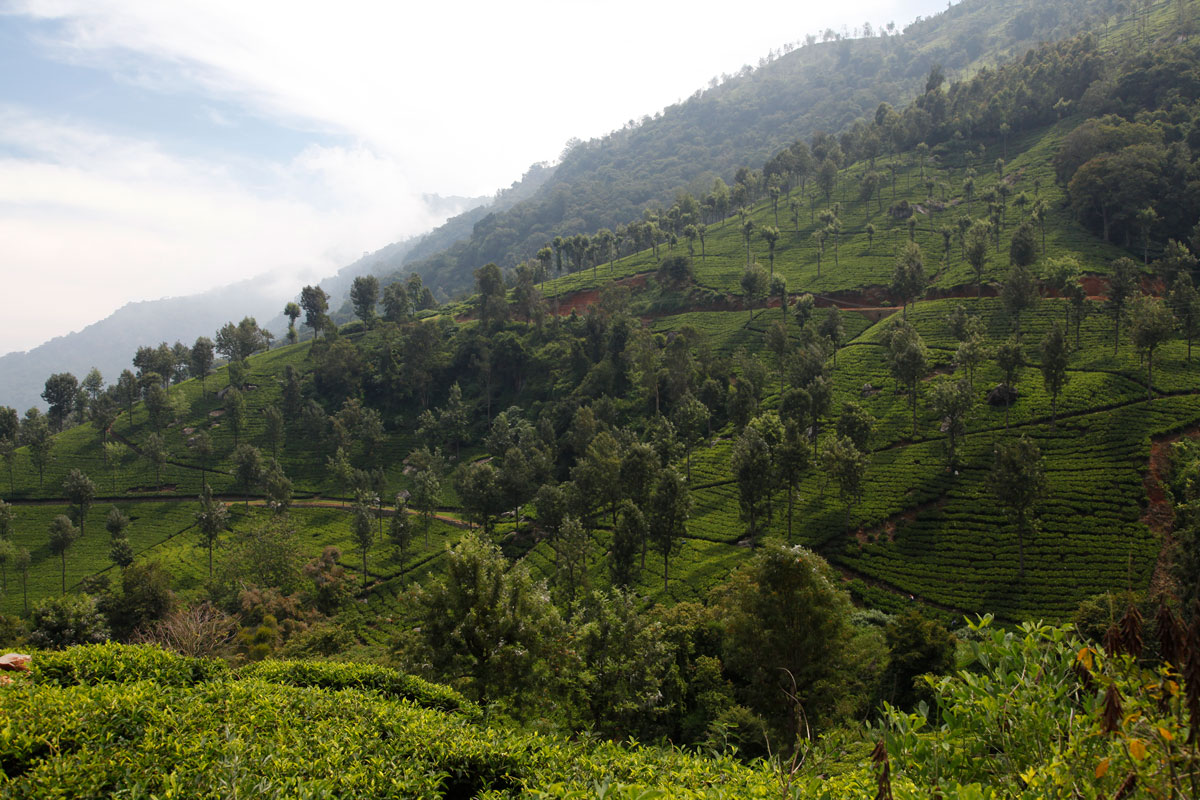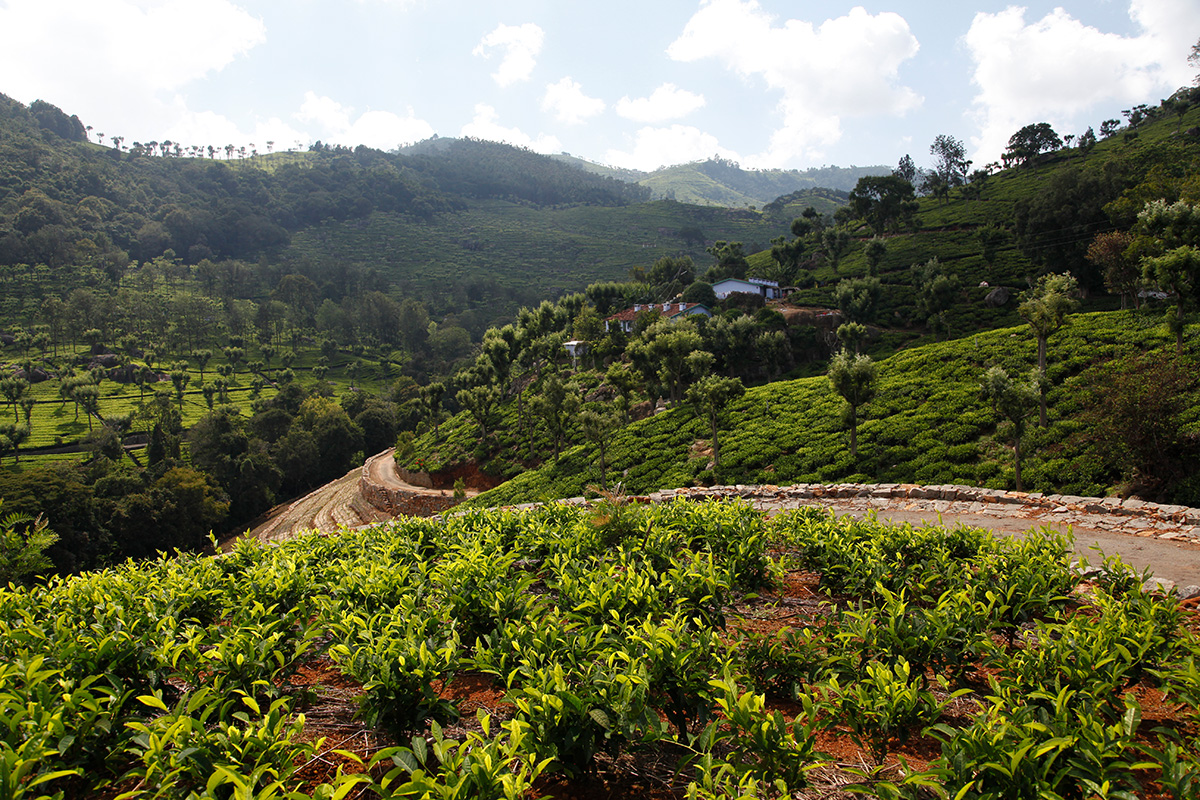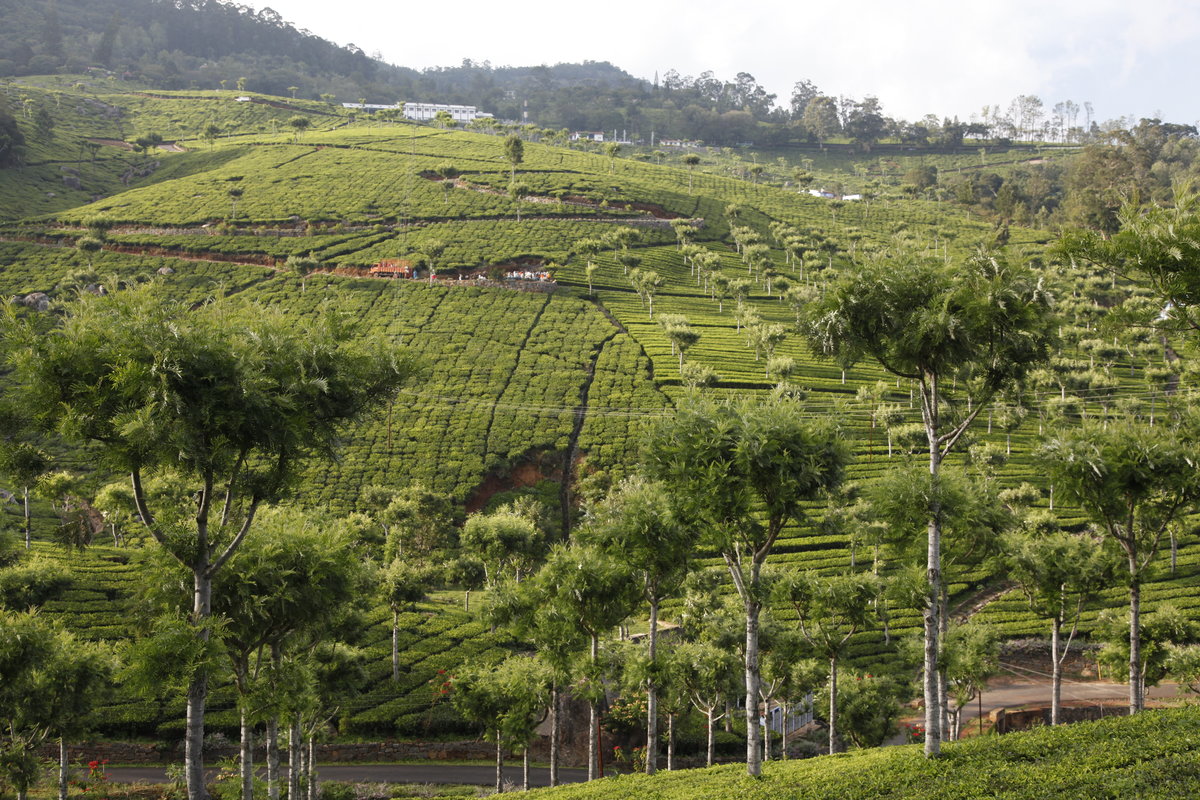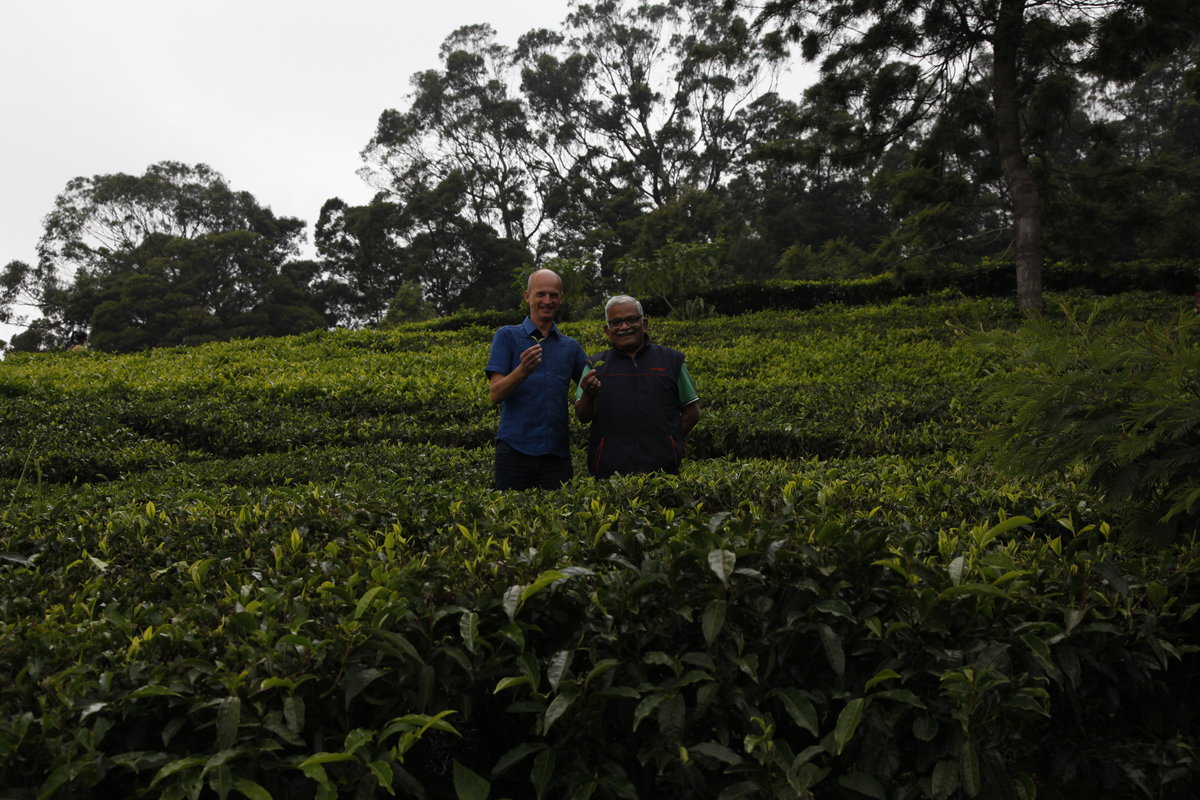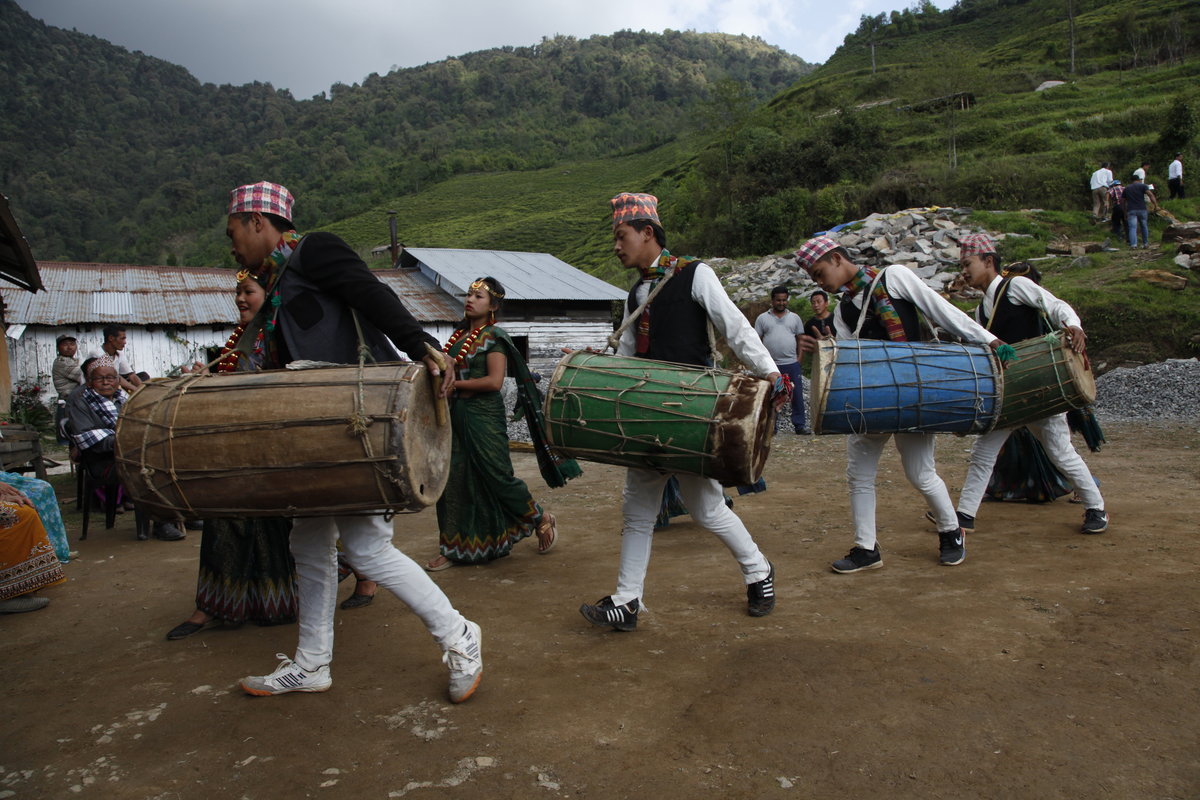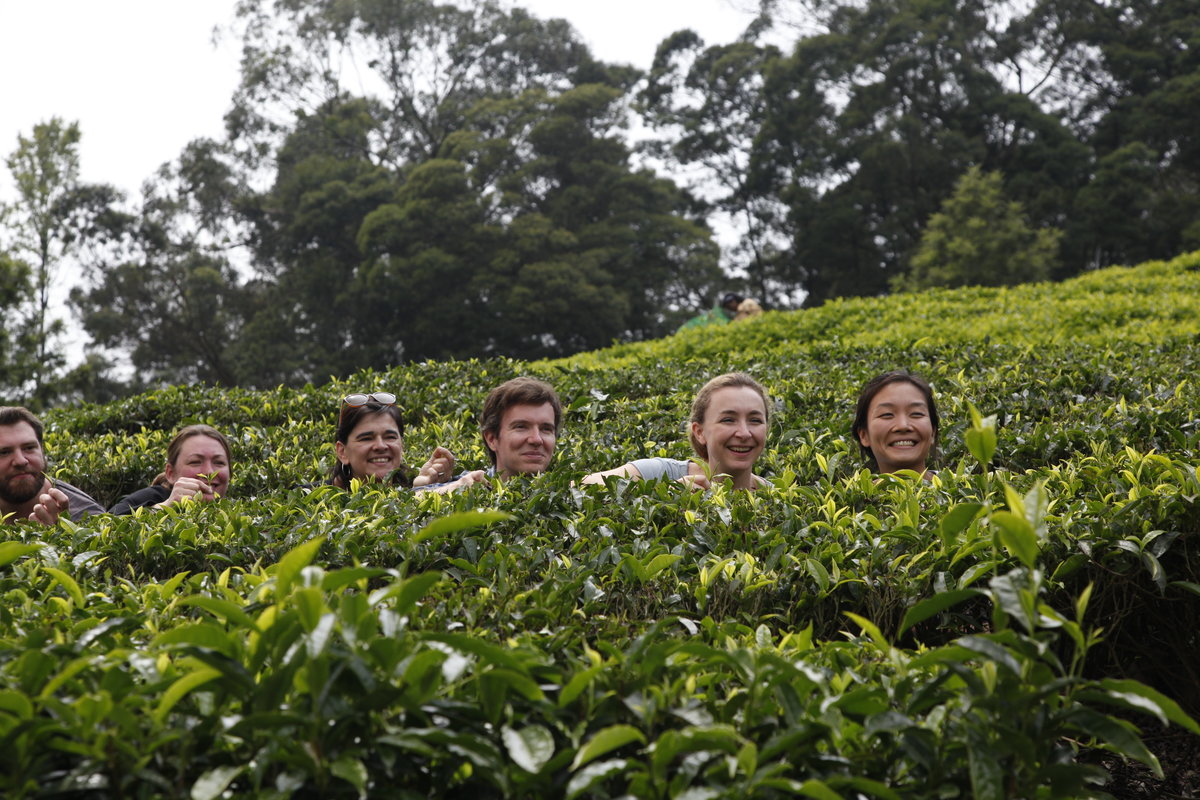My first trip to Malawi was just over three years ago. Until then, nobody had sold tea from that country in France, and I’m delighted to have found some very good teas there, which have been well received among tea enthusiasts. In a few days’ time I will be back in the far south of this magnificent country to see teas being made, including a dark tea and a smoked tea, and to taste them with Alex and his team. I will take some teas from other countries with me, which is something else I like to do in my work: encourage producers’ curiosity by getting them to try teas made by other people, not so they can copy them, but to inspire them and to connect them, through the tasting, with other farmers who have equally precious expertise.
Yorozu in Fukuoka, a unique experience
The Japanese city of Fukuoka may not get many Western tourists, but if you go there and you like new gastronomical experiences, you should go to Yorozu. You need to book in advance, you need to speak Japanese, or go with someone who speaks the language, it’s essential, and you need a couple of hours free. Then, let yourself be guided, and Suguru Tokubuchi will introduce you to pairings of food with tea and various alcohols, dishes prepared in front of you in an intimate setting, which makes every sip even more precious, every mouthful chosen to accompany one of the cocktails. It’s a unique experience.
In Japan, organic farmers, father and son
I’d like to introduce you to Kitano Shuichi. Of all the farmers I’ve met in Japan, he’s the most passionate and inspiring about organic practices. He’s been using these methods for 30 years, introduced by his father. The latter, convinced of the health benefits of organic tea, suffered financially for ten years, due to very low yields, but he pulled through. Today, he sells his tea for a good price because demand for organic tea is higher. Kitano Shuichi and his father make their own compost, while others buy it in from outside. But most significantly, they never use anything to do with animals in their compost. So that means no cow manure, for example. They believe in biodynamic methods and use them successfully. They’re so proud of their compost they insist you taste it. But if you want to know their exact recipe, you can ask all you like but they’ll reveal nothing save their good humour, with a smile.
Our friends the earthworms
Tea plantations that use organic methods avoid all conventional pesticides and fungicides. They limit the spread of undesirable elements through the use of natural predators or repellents. And to enrich the soil, to make up for the nutrients that the tea plants take up, especially in intensive farming, they need to add a significant amount of organic matter. Organic compost can be bought in, or even better, produced on the plantation. One way of doing this is using vermiculture, a fairly common practice in India. Millions of earthworms are fed cattle manure mixed with chopped up banana leaves, for example. The worms produce excrement, and it is this excrement that is deposited around the base of each tea plant.
Mountains in Southern India
When you think of Southern India, you think of colourful temples, ancient spice trading posts, beaches lined with palm trees, boats gliding along complex networks of canals and backwaters, and luxuriant gardens. Southern India is less well-known for its mountains. Yet what are called the Ghats, literally “steps”, peak at more than 2,000 metres above sea level. This altitude and climate is well suited to tea plants.
Thanks to you
I visit many places I never want to leave, where I’m surrounded by dreamy landscapes and amazing nature, where I meet such kind and lovely people, but I always come back. I often come back with delicious teas, that’s my job, and with these photos I share with you. I love to share them with you as it’s a way of prolonging my travels, days and weeks later. I show you my photos here, I write a few lines of explanation, and in doing so, I’m transported. Thanks to you I return, I’m back in the mountains I travelled through a little too quickly, and now I have time to contemplate them, here, in your company.
Holding the soil in place
Farming methods change over time. Tea bushes sometimes used to be planted following the slope of the ground, resulting in vertical lines like those visible on the left of this photo. Today, young bushes are planted in horizontal rows, to reduce soil erosion. In heavy rain, the water runs off more slowly and the tea bushes hold the soil in place.
My friend Anil
I’ve known Anil for more than 10 years. Back then, he was running a beautiful tea plantation, Thaishola, in southern India. I visited him there several times, and he taught me a great deal. He made high-quality teas in the Nilgiri Mountains. Then he became an auditor for organisations that certify tea produced using methods which respect the planet and its people. His efforts were admirable. And now, thanks to his immense experience, he advises tea plantations. Recently, I visited him with a team from Palais des Thés. He was so attentive to us, and went to great lengths to arrange meetings with people he considers to be the best producers in the region. We pestered him with questions from morning till night. He also let us stay in this incredible Ootacamund Club, where we were transported 200 years back in time to the reign of Queen Victoria. He dedicated all his time to us, and never tired of our thirst for knowledge about tea. He was generous with every remark and explanation. Thank you Anil!
A musical reception in the Himalayas
In the Himalayas, people love music. Whenever the opportunity arises, they take up their instruments – sometimes a guitar, sometimes something more traditional – and they sing and dance. Here, with the Limbu people, everyone is wearing traditional dress to celebrate my arrival. They played and danced until the last rays of the setting sun, overlooking magnificent mountains. Later, they lit the fire. It’s a moment of pure happiness.
Sharing my passion
In this blog, which is celebrating its seventh year, I love to talk about the work I’ve been doing for more than 30 years; my job is my passion. Part of the joy comes from sharing it in situ with my colleagues at Palais des Thés and showing them what I do every day. They accompany me on tours around the tea fields and I share with them the time I spend with farmers and planters, which is so important in my view, learning about every aspect of their work and their life. Here, from left to right, are Benoît (poor framing on my part has deprived him of his right ear), Audrey, Sylvie, Frédéric, Constance and Linda, who don’t look unhappy to be on the trip.

